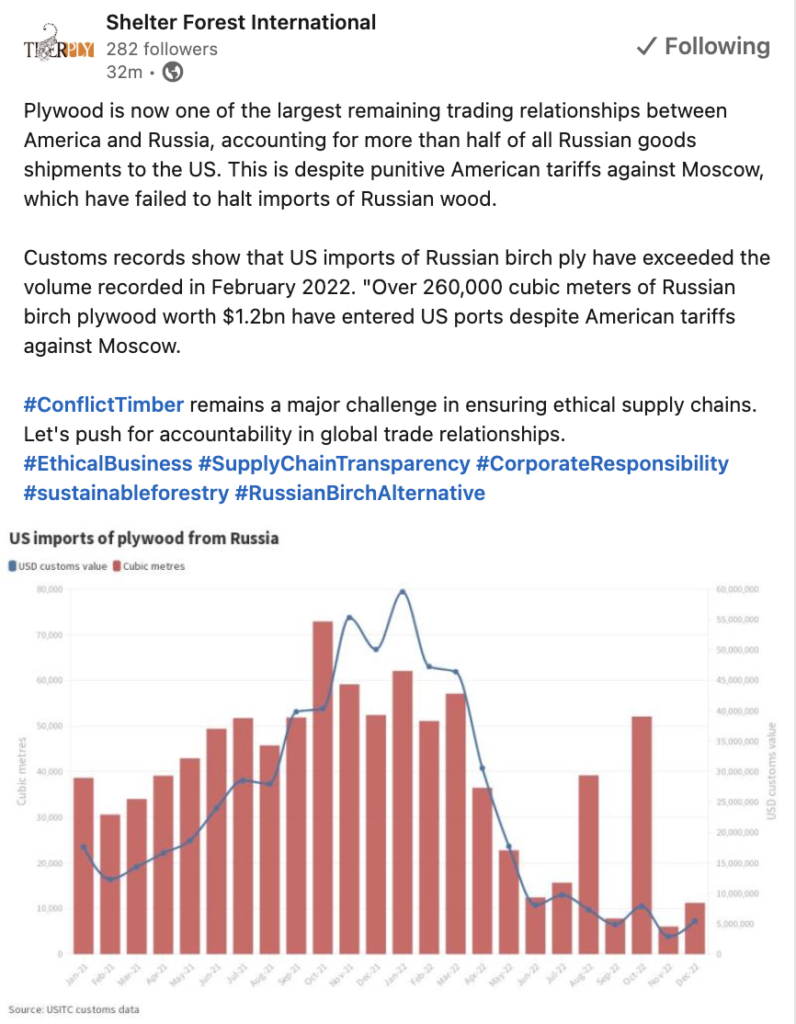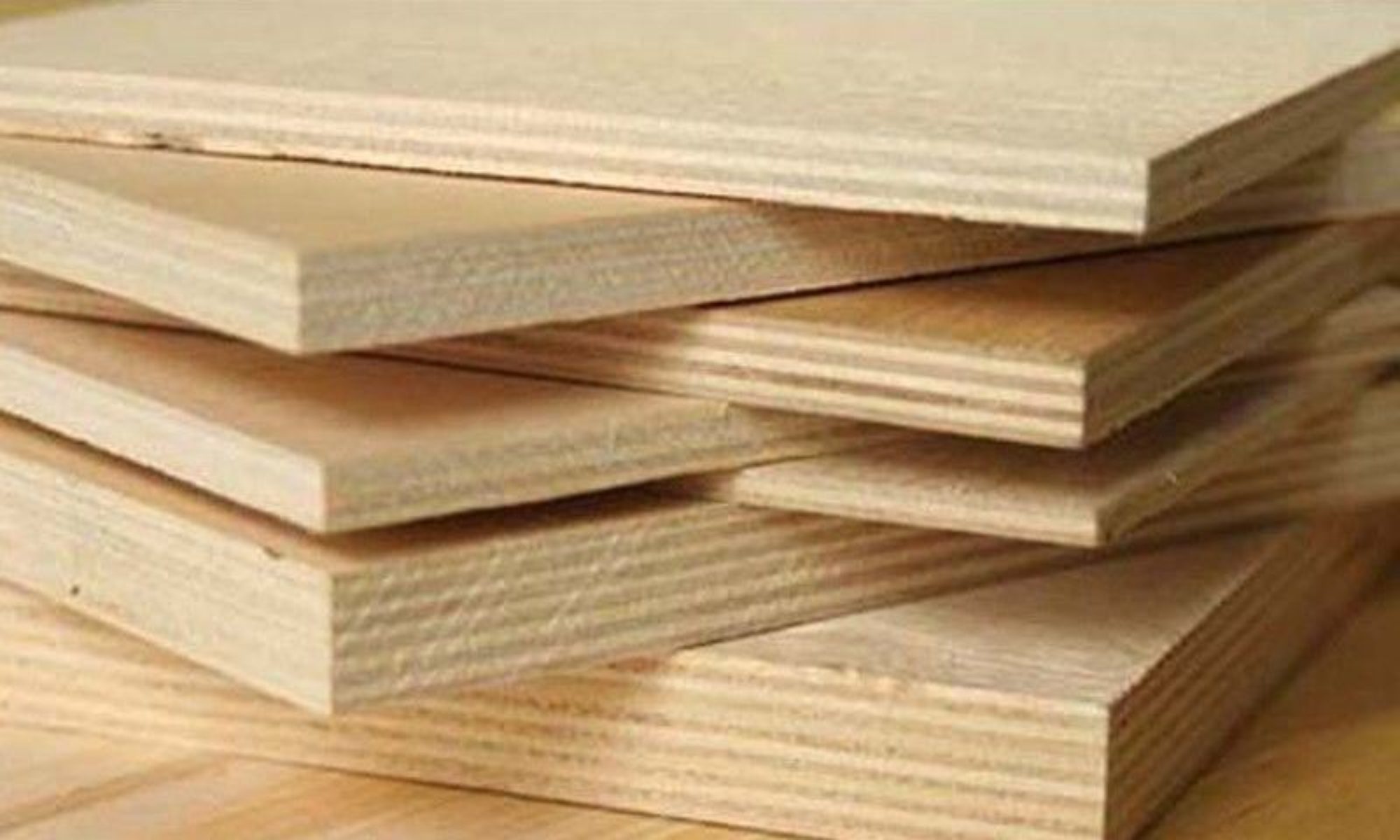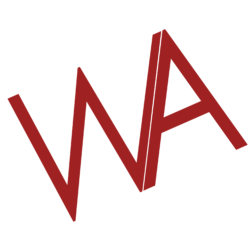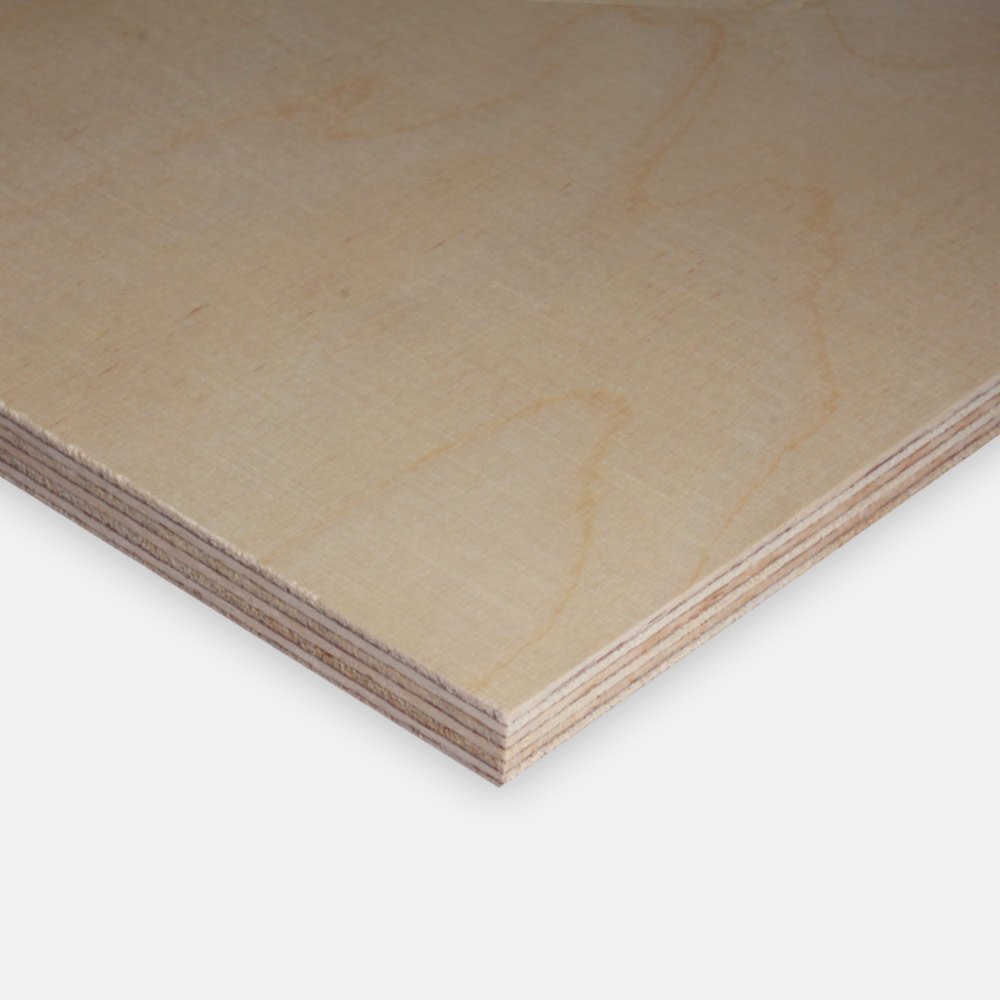In response to the conflict in Ukraine, several western nations have imposed sanctions on Russian and Belarusian birch plywood. This material, which is widely used in the global construction sector for flooring, automotive, door, and cabinet decoration, is extremely popular.
Prior to the invasion of Ukraine by Russia in February 2022, the combined production of birch plywood in Russia, Belarus, and Ukraine accounted for approximately 80% of the global output. The US has been a significant importer of Russian birch plywood, importing over 500,000 cubic meters annually, while Russia and Belarus have been exporting over 1 million cubic meters annually to the EU.
The EU, the UK, Norway, and Switzerland have banned all timber imports from the two countries, and the US has revoked Russia’s most-favored nation status, raising customs tariffs on Russian birch plywood to 50%. At the same time, international timber certification bodies FSC and PEFC have declared timber from Russia, Belarus, and conflict areas of Ukraine to be “conflict timber” and suspended their certifications until the conflict is resolved.
The discrepancy in the implementation of sanctions between the EU and US is questionable and primarily driven by political and power dynamics. Blocking imports and adding costs are not the same thing. Both actions can impact trade and commerce, but they have different effects and are used for different political purposes.
Various methods are employed to circumvent the import ban and illegally transport birch plywood to European markets. One approach involves transiting the plywood through a third country to evade detection. Additionally, some third countries may make minor modifications to the plywood, subsequently reporting the modified product as their own and masking its true origin. Another tactic involves the use of false tariff classifications, allowing the product to be excluded from sanctions.
The sanctions have caused some traders to evade them by importing through third countries such as Turkey, Kazakhstan, China, and Serbia, likely resulting in wash trading of Russian products.
Some EU plywood manufacturers have tested alternative combi products using poplar, eucalyptus, and maple core material, but these products do not have the same technical and visual characteristics as birch plywood.
The sanctions are expected to impact the market for years to come, and buyers must weigh their options:
- purchasing birch plywood from available honest manufacturers while paying a premium,
- purchasing birch plywood from “new” manufacturers with questionable origins,
- or opting for alternative combi plywood and adapting their product application and specifications.
We welcome your thoughts and insights on this challenging situation. If you have any suggestions or see other possibilities, please feel free to share in the comments below.



